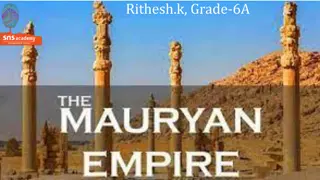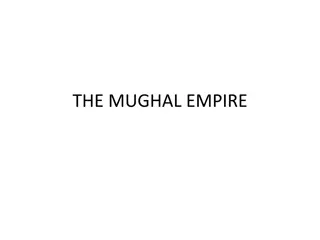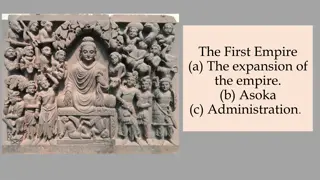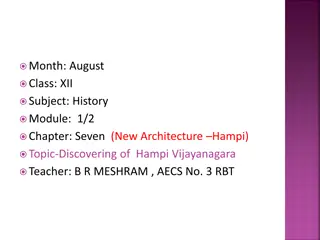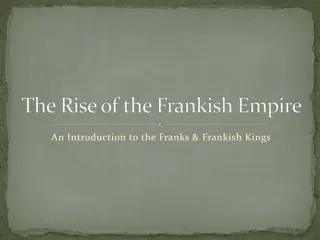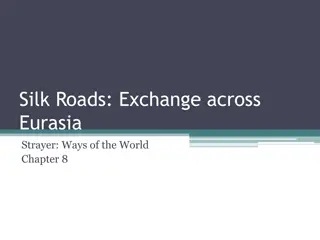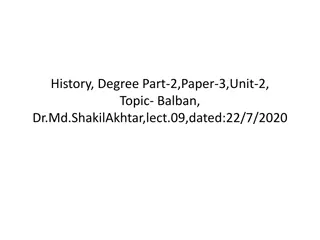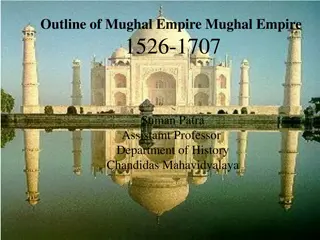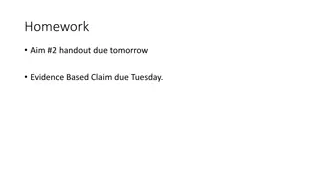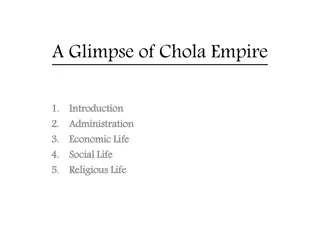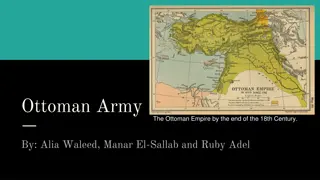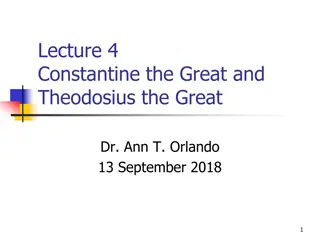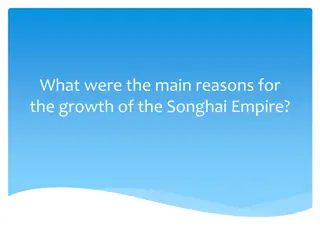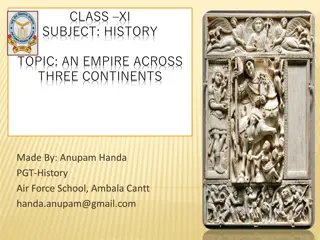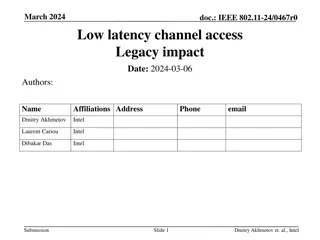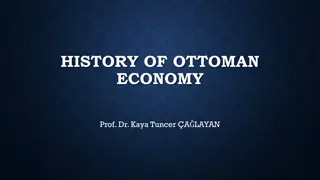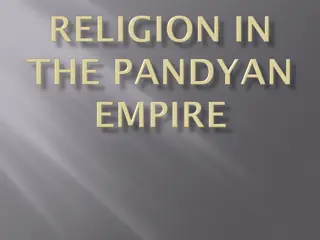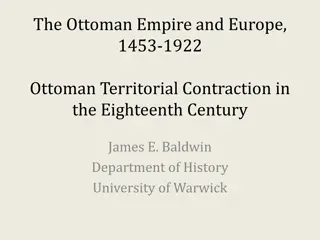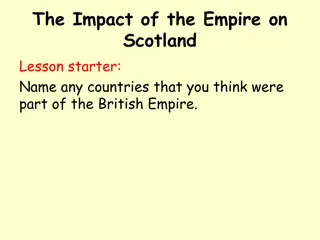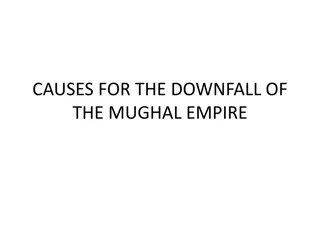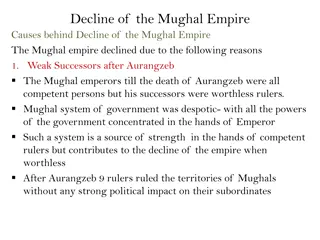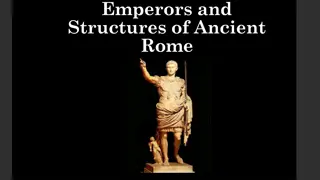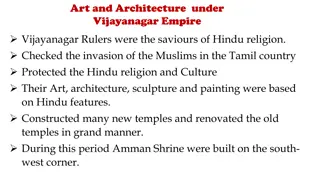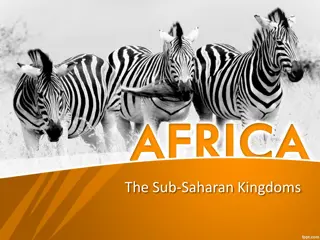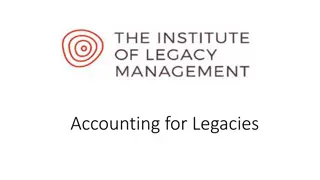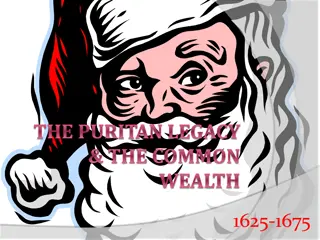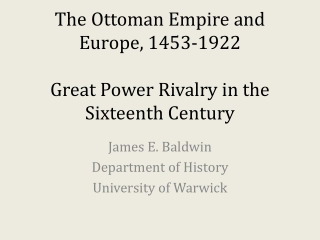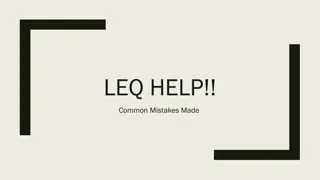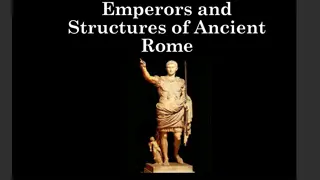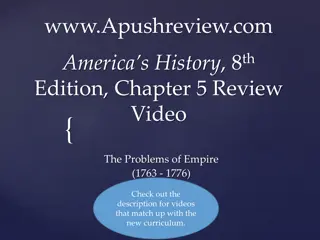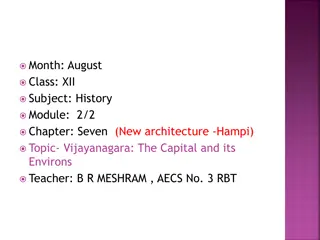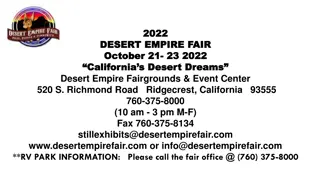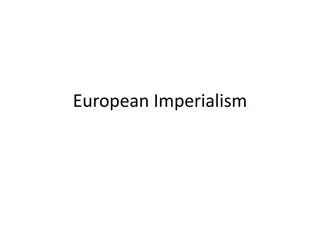Rise and Legacy of the Mongol Empire
The rise of the Mongol Empire under Genghis Khan, the unification of Mongols, conquests, and the establishment of the Yuan Dynasty by Kublai Khan are highlighted. The Mongols' military prowess, organizational skills, and cultural adaptability led to the largest land empire in history. The Pax Mongolica era brought peace and prosperity, promoting trade and knowledge exchange. Despite their conquests, the Mongols rarely imposed their beliefs on conquered peoples. The legacy of the Mongol Empire left a lasting impact on Asia's history.
Download Presentation

Please find below an Image/Link to download the presentation.
The content on the website is provided AS IS for your information and personal use only. It may not be sold, licensed, or shared on other websites without obtaining consent from the author. Download presentation by click this link. If you encounter any issues during the download, it is possible that the publisher has removed the file from their server.
E N D
Presentation Transcript
Today we will look at the Tang/Song Dynasty and then move on to the Yuan (Mongols)
Ancient China & Japan Outcome: The Mongols
The Mongols 1. Setting the Stage: a. The Mongols were gaining strength in the north in Asia b. They prided themselves on their skill on horseback, their discipline, and courage c. Mongols were nomadic pastoralists: herded domesticated animals d. Mongols traveled together in kinship groups called clans
The Mongols 2. The Rise of the Mongols a. Temujin sought to unify the Mongols under his leadership around 1200 b. Slowly Temujin defeated his enemies (and friends) one by one c. In 1206 he accepted the title of universal ruler of Genghis Khan d. Genghis Khan conquered much of Asia and had goal of invading China e. By 1225 Central Asia was under Mongol control
The Mongols f. Reasons for Genghis Khan s successes: i. He was a brilliant organizer ii. Was a gifted strategist iii. Used cruelty as a weapon
The Mongols 3. The Mongol Empire a. Genghis Khan died in 1227 of illness b. His successors continued to conqueror territory eventually having the largest unified land empire in history c. Successors divided region up into different territories called khanates. d. Had territory from Kiev in the West to China in the East e. Mongols destroyed villages, irrigation channels, and decimated populations
The Mongols f. Rarely imposed their beliefs on conquered peoples g. Even adopted some of the culture of those they ruled h. Pax Mongolica: Mongol Peace- time of peace and stability across the Mongol Empire from mid 1200s to mid 1300s i. Trade and inventions spread rapidly during Pax Mongolica due to safe travel
The Mongols 4. Kublai Khan Becomes Emperor a. Grandson of Genghis Khan took title in 1260 b. Wanted to fulfill wish of grandfather: conquer all of China c. Started the Yuan Dynasty which ruled from 1279- 1368 d. China was united for first time in nearly 300 years Kublai Khan s control opened China up to more trade and foreign contact Enjoyed living in luxury as Chinese emperor Attempted to take over Japan but Japanese might and weather halted the invasion Kublai Khan improved the Grand Canal and added 135 miles to it e. f. g. h.
The Mongols 5. Mongol Rule in China a. Mongols were hugely outnumbered in China- lived apart from one another b. Chinese were not allowed to hold high government office however could serve at local levels c. High public office went to Mongols or foreigners- felt foreigners could be trusted due to having no loyalties to the Mongols or Chinese d. Mongol Peace extended trade e. Traders wanted silk, porcelain, gunpowder, paper currency, and the compass
The Mongols f. Invited foreign merchants g. Venetian trader Marco Polo came to Kublai Khan s court around 1275 i. Worked for Kublai Khan because he learned many Asian languages ii. While imprisoned, Polo told his story which was later published as a book but most Europeans did not believe it
The Mongols 6. The End of Mongol Rule in China a. Kublai Khan s armies and navies suffered many humiliating defeats at a huge expense of lives and equipment towards the end of his reign b. Heavy spending on wars, public works, and Yuan luxuries over burdened the treasury and angered the overtaxed citizens c. Kublai Khan died in 1294 and his successors were inept at ruling the dynasty d. In 1368 Chinese rebels finally overthrew the Mongols e. The Ming Dynasty would be established With the fall of the Yuan came the disintegration of the Mongol empire in Asia g. Japan was on the rise f.


